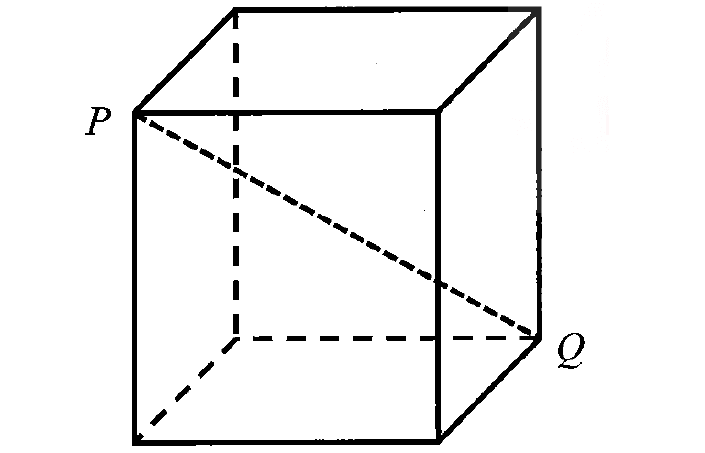7th GRADE MATH PROBLEMS AND ANSWERS
Question 1 :
The unit digit of 1317 + 1713 is
(A) 0 (B) 9 (C) 1
Solution :
|
Unit digit of 131 = 3 Unit digit of 132 = 9 Unit digit of 133 = 7 Unit digit of 134 = 1 |
Unit digit of 171 = 7 Unit digit of 172 = 9 Unit digit of 173 = 3 Unit digit of 174 = 1 |
(The order is repeated after every multiple of 4)
Hence the unit digit of 1317 is 3
Units digit of 1713 = 7
Units digit of sum of both the numbers = 3+7 = 0
Answer = 10
(The order is repeated after every multiple of 4)
Question 2 :
If the diameter of a circle is 376216 inches, using the approximation π = 3:14, compute the ratio of the its area, in square inches, to its circumference in inch.
(A) 94054:5 (B) 94554:1 (C) 94054:1
Solution :
Radius of circle = 376216/2 = 188108
Area of circle : Circumference of circle
πr2 : 2 πr
r : 2
188108 : 2
Divide both terms by 2
188108/2 : 2/2
94054 : 1
Question 3 :
If 1/7 is written in decimal form, then the 100th digit after the decimal point is
(A) 8 (B) 3 (C) 7
Solution :
1/7 = 0.142857142857............
From the above decimal value, we come to know that this 6 digits is repeating.
Now let us calculate how many 6 are in 100.
16 (6) = 96
1 is the 97th digit
4 is the 98th digit
2 is the 99th digit
8 is the 100th digit
Question 4 :
The length of the two parallel sides of a trapezium are 15 cm and 10 cm. If its area is 100 sq. cm. Find the distance between the parallel sides.
(A) 12 cm (B) 16 cm (C) 8 cm
Solution
Given: a = 15 cm, b = 10 cm, Area = 100 sq. cm.
Area of the trapezium = 100
(1/2) h (a + b) = 100
(1/2) h (15 + 10) = 100
h = 200/25
h = 8
So, the distance between the parallel sides = 8 cm.
Question 5 :
.If a, b, and c are nonzero numbers satisfying 3a = 4b and 5b = 6c, what is c/(a + b) ?
(A) 5/14 (B) 3/10 (C) 2/19
Solution :
|
3a = 4b a = 4b/3 |
5b = 6c (5b/6) = c |
c/(a + b) = (5b/6)/((4b/3) + b)
= (5b/6)/(7b/3)
= (5b/6)⋅(3/7b)
= (5/2)⋅(1/7)
= 5/14
So, the answer is 5/14.
Question 6 :
The radii of two spheres are of 2 and 6, then the ratio of the volume of the larger sphere to the volume of the smaller sphere is
(A) 1 : 27 (B) 2 : 15 (C) 5 : 14
Solution :
Volume of sphere = (4/3) πr3
(4/3) πR3 : (4/3) πr3
R3 : r3
23 : 63 ==> (2 ⋅ 2 ⋅ 2)/(6 ⋅ 6 ⋅ 6)
1 / 27
1 : 27
So, the required ratio is 1 : 27
Question 7 :
If P be the product of the first nine multiples of 19 (i.e. P = 19x38x57……….152x171). What is the unit digit of P?
(A) 5 (B) 9 (C) 0
Solution :
= 19 x 38 x 57……….152 x 171
= (1 x 19) x (2 x 19) x (3 x 19)……….(9 x 19)
= 19 (1 + 2 + 3 + .......... + 9)
= 19 ( 9(9+1) / 2)
= 19 (9 ⋅ 10 / 2)
= 19 ⋅ 45
= 855
So, the unit digit is 5.
Question 8 :
Find the perimeter of the rectangle whose length is 5cm and breadth is 3 cm.
(A) 10 cm (B) 16 cm (C) 15 cm
Solution :
Perimeter of rectangle = length ⋅ breadth
= 5 (3)
= 15 cm
So, the perimeter of rectangle is 15 cm.
Question 9 :
What is the value of 1 + 3 + 5 +…………………… + 195 + 197 + 199?
(A) 10500 (B) 10001 (C) 10000
Solution :
Sum of odd numbers = [(l + 1)/2]2
= [(199 + 1)/2]2
= (200/2)2
= 1002
= 10000
So, the answer is 10000.
Question 10 :
The number of positive divisors of 120 are divisible by 4 are
(A) 7 (B) 3 (C) 8
Solution :
Divisors of 120 are 1, 2, 3, 4, 5, 6, 8, 10, 12, 15, 20, 24, 30, 40, 60, 120
From the above numbers 4, 8, 12, 20, 24, 40, 60, 120 are divisible by 4.
So, the answer is 8.
Kindly mail your feedback to v4formath@gmail.com
We always appreciate your feedback.
©All rights reserved. onlinemath4all.com
Recent Articles
-
Digital SAT Math Problems and Solutions (Part - 151)
Apr 26, 25 11:18 AM
Digital SAT Math Problems and Solutions (Part - 151) -
AP Calculus BC Problems with Solutions
Apr 26, 25 05:49 AM
AP Calculus BC Problems with Solutions -
Digital SAT Math Problems and Solutions (Part - 150)
Apr 25, 25 11:46 AM
Digital SAT Math Problems and Solutions (Part - 150)
